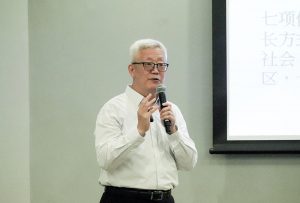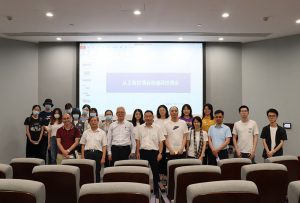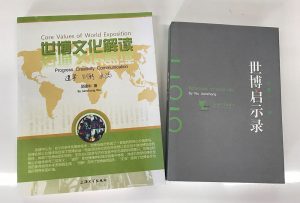The World Expo (Expo) is a global event that showcases different civilisations and cultures. In October this year, the Dubai Expo will open, with the theme being ‘Connecting Minds, Creating the Future’. Over a decade ago, Dr Wu Jianzhong, librarian of the University of Macau (UM), served as a chief thematic planner for the World Expo 2010 in Shanghai. At his lecture held in the Cultural Building of UM, Dr Wu shared his Expo stories and predicted the upcoming Expo’s global impact. ‘At the Expo, you will see a wonderful world.’
A Celebration of Civilisations
Dr Wu has a great passion for the Expo. In fact, he has written several books on the subject, including Reflections on world EXPO, written during the Expo 2010, and Core Values of World Exposition, which traces the evolution of the Expo over the century, and defines the event’s core values as progress, creativity, and communication.
The Expo celebrates different civilisations, and all of its participating countries and regions uphold the event’s core values. Dr Wu says, ‘At the Expo, there’re no enemies, only friends who come together as one to showcase their cultural and technological innovations. So I encourage all of you to visit the Expo to experience firsthand its unique atmosphere.’
Involvement in the Drafting of the Shanghai Declaration
During his lecture titled ‘From Shanghai Expo to Dubai Expo’, Dr Wu shared his stories during his preparation for the Shanghai Expo.
It has been more than a decade since China hosted the Shanghai Expo, but Dr Wu still has vivid memories of the event. As its chief thematic planner, he had to review the theme statements submitted by all participating countries and regions, and helped write the Shanghai Declaration, which was issued at the Shanghai Expo’s closing ceremony. The Declaration was jointly drafted by the United Nations, the Bureau International des Expositions, and the Organizing Committee of Expo 2010 Shanghai China. Dr Wu remembers that the drafters initially held conflicting opinions regarding the different discourse systems in the West and the East. Eventually, it was decided to write the Declaration in a clear and concise way that would appeal to a broad audience. ‘To effectively highlight the Expo’s theme, it’s vital to use simple language and bring together ideas from Eastern and Western cultures.’
The Expo Presents Shanghai to the World
Dr Wu says the Expo’s legacy can still be felt throughout Shanghai. ‘The real transformation of Shanghai began with the Huangpu River, and the transformation of the river came with the Expo,’ he says. ‘The local government pushed the harbours and many factories to move out the riverside, and turned it into a core district with business towers, exhibition and conference facilities, residential buildings, and public facilities. Indeed, the district has become a symbol of Shanghai’s transformation.’
Dr Wu adds, ‘The Shanghai Expo spurred the renovation of public facilities, which created massive socio-economic benefits. The event also presented Shanghai to the world and enhanced its global standing.’ To prepare for the Expo, the government of Shanghai also invested heavily in the city’s underground transport system, making it the biggest urban rail transit system in the world, Dr Wu says.
Impact of the Dubai Expo
The Dubai Expo will open in October this year, with the theme being ‘Connecting Ideas, Creating the Future’. Dr Wu believes that the upcoming Expo will build global consensus for a green recovery, support global actions to achieve sustainable development, and enhance cooperation around the world. ‘The event will also provide a platform for discussion on global opportunities and challenges, and spark innovations that contribute to economic development and social harmony in a post-pandemic world’, Dr Wu says.
Profile
Dr Wu Jianzhong is the librarian of UM, and head of a committee for academic research of the Library Society of China. He is a former director of the Shanghai Library. Dr Wu was born in 1956 in Shanghai and majored in Japanese studies in college. He obtained a master’s degree in library science from East China Normal University and was assigned to work in Shanghai Library after graduation. At age 29, he was appointed deputy director of the Shanghai Library and worked in the position from 1988 to 1991. Later, he obtained a PhD degree from the University of Wales in the United Kingdom. In 2019, he received a commemorative medal for the 70th anniversary of the founding of the People’s Republic of China.
Source: My UM e-version



